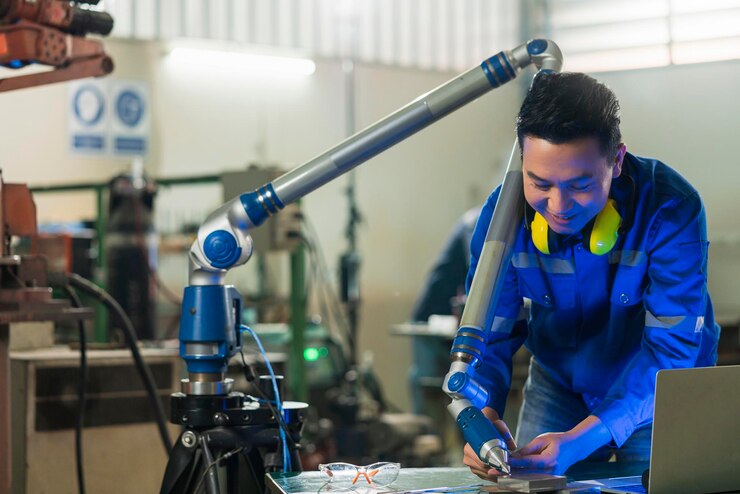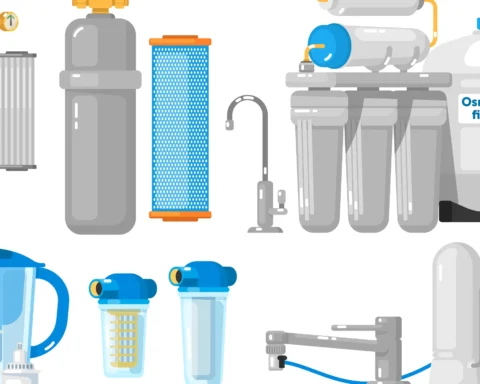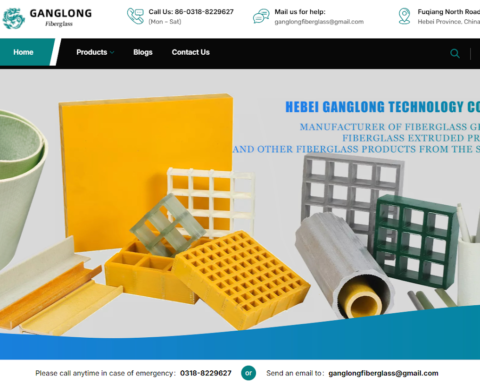Mechanical engineering in New Zealand stands as a cornerstone of technological innovation, driving advancements across various sectors from renewable energy to advanced manufacturing. This article delves into the dynamic landscape of mechanical engineering solutions tailored for New Zealand’s unique challenges and opportunities.Mechanical engineering plays a pivotal role in shaping New Zealand’s technological infrastructure. From designing sustainable solutions to managing complex projects, mechanical engineers are at the forefront of innovation in this island nation. The discipline encompasses a wide range of applications, including automotive engineering, aerospace technology, renewable energy systems, and more.
Challenges in Mechanical Engineering in NZ
New Zealand faces distinct challenges that shape the practice of mechanical engineering. The country’s geographic isolation and environmental sensitivity require engineers to develop solutions that are not only efficient but also environmentally sustainable and resilient to natural forces. Environmental considerations are paramount, with projects needing to adhere to stringent regulations to protect the country’s pristine ecosystems.
Environmental Considerations
The pristine environment of New Zealand necessitates engineering solutions that minimize ecological impact and enhance sustainability. This includes designing energy-efficient systems, optimizing resource use in manufacturing processes, and integrating renewable energy sources into infrastructure projects. Engineers must balance technological innovation with environmental stewardship to ensure long-term sustainability.
Technological Advancements
Rapid advancements in technology present both opportunities and challenges for mechanical engineers in New Zealand. The adoption of automation technologies, artificial intelligence (AI), and Internet of Things (IoT) devices is transforming traditional manufacturing and production processes. These technologies improve efficiency, reduce operational costs, and enhance product quality, positioning New Zealand’s industries at the forefront of global competitiveness.
Role of Mechanical Engineers
Mechanical engineers in New Zealand play a crucial role throughout the lifecycle of engineering projects. From initial concept design to final implementation, their expertise spans across various disciplines. They are responsible for translating client requirements into feasible design solutions, ensuring compliance with safety standards and regulatory frameworks.
Design and Development
The design phase is critical in mechanical engineering, where engineers innovate solutions that meet specific client needs while adhering to regulatory standards. Advanced computer-aided design (CAD) software and simulation tools are utilized to optimize designs, predict performance outcomes, and minimize risks before prototype development. Engineers collaborate with multidisciplinary teams to integrate diverse perspectives and expertise into comprehensive design solutions.
Project Management
Effective project management is essential to ensure the successful execution of mechanical engineering projects in New Zealand. Engineers oversee project timelines, budgets, and resource allocation to meet client expectations and project milestones. They coordinate with contractors, suppliers, and stakeholders to manage logistics, procurement, and onsite construction activities, ensuring adherence to quality standards and regulatory compliance throughout the project lifecycle.
Emerging Trends in Mechanical Engineering
The field of mechanical engineering in New Zealand is characterized by transformative trends that are reshaping industries and driving innovation forward.
Sustainability Initiatives
There is a growing emphasis on sustainability in mechanical engineering practices, driven by global environmental challenges and regulatory requirements. Engineers are leading initiatives to integrate renewable energy sources, implement green building practices, and develop eco-friendly manufacturing processes. Sustainable design principles prioritize resource efficiency, minimize environmental impact, and enhance resilience against climate change impacts.
Automation and AI Integration
Automation technologies such as robotics, AI, and machine learning are revolutionizing manufacturing and production processes in New Zealand. Engineers are leveraging these technologies to automate repetitive tasks, improve operational efficiency, and optimize supply chain management. AI-driven predictive analytics enhance decision-making processes, enabling proactive maintenance and performance optimization in industrial settings. Robotics technologies enhance precision and flexibility in manufacturing operations, supporting customized production capabilities and enhancing product quality.
Case Studies of Innovative Projects
Several groundbreaking projects exemplify the innovative spirit of mechanical engineering in New Zealand, showcasing the application of advanced technologies to solve real-world challenges and drive sustainable development.
Renewable Energy Applications
New Zealand’s abundant renewable energy resources, including hydroelectric, geothermal, wind, and solar power, present opportunities for innovative engineering solutions. Engineers are involved in the design and implementation of renewable energy infrastructure, such as wind farms in Canterbury and geothermal power plants in Rotorua. These projects contribute to reducing dependence on fossil fuels, lowering carbon emissions, and enhancing energy security for communities across the country.
Smart Manufacturing Solutions
Innovative manufacturing facilities in Auckland, Wellington, and Christchurch are embracing smart technologies to optimize production processes and improve operational efficiency. IoT-enabled devices and sensors provide real-time data analytics, facilitating predictive maintenance, inventory management, and quality control. Robotics and automated systems streamline assembly lines, reduce production costs, and increase production output while ensuring consistency and reliability in product manufacturing. These advancements support sustainable manufacturing practices and enhance competitiveness in global markets.
Education and Training in Mechanical Engineering
New Zealand’s education system offers comprehensive programs and initiatives aimed at preparing students for careers in mechanical engineering and fostering continuous professional development among practicing engineers.
Universities and Programs
Leading universities such as the University of Auckland, University of Canterbury, and Victoria University of Wellington offer accredited mechanical engineering degrees that combine theoretical knowledge with practical experience. Specialized courses in renewable energy systems, advanced materials, and robotics prepare students to address complex engineering challenges and industry demands. Hands-on laboratory exercises and research opportunities enable students to gain practical skills and technical expertise essential for successful careers in mechanical engineering.
Skill Development Initiatives
Professional organizations, industry associations, and government agencies collaborate to provide ongoing training and skill development programs for mechanical engineers in New Zealand. Continuing education courses, workshops, and seminars cover emerging technologies, regulatory updates, and industry best practices. Certifications and licensure programs ensure that engineers maintain high professional standards and stay abreast of technological advancements in their field. These initiatives support career advancement opportunities and promote lifelong learning among engineering professionals, enhancing their contributions to innovation and sustainable development.
Collaboration and Industry Partnerships
Collaboration between government agencies, academia, and private sector entities is essential for driving innovation, research, and development in mechanical engineering.
Government Initiatives
Government-funded research grants and initiatives support collaborative projects that address national priorities, such as infrastructure resilience, environmental sustainability, and technological innovation. Funding opportunities encourage industry-academic partnerships, knowledge transfer, and commercialization of research outcomes. Public-private partnerships facilitate the integration of cutting-edge technologies and expertise from diverse sectors, fostering a collaborative ecosystem for innovation and economic growth.
Private Sector Involvement
Industry partnerships play a pivotal role in advancing technological innovation and enhancing competitiveness in global markets. Private sector investments in research and development enable the adoption of disruptive technologies, such as AI, robotics, and advanced manufacturing techniques. Cross-sector collaborations promote knowledge sharing, resource pooling, and joint ventures that accelerate the development and deployment of innovative engineering solutions. These partnerships strengthen the resilience and adaptive capacity of New Zealand’s mechanical engineering sector, supporting sustainable development goals and driving economic prosperity.
Impact of Mechanical Engineering on NZ Economy
Mechanical engineering contributes significantly to New Zealand’s economy through job creation, infrastructure development, and export opportunities across various industries.
Job Creation
Mechanical engineering firms employ a diverse workforce, including design engineers, project managers, technicians, and skilled tradespeople. The sector’s employment opportunities support local communities and contribute to regional economic development. Engineers play a vital role in designing and implementing infrastructure projects, such as transportation networks, energy systems, and manufacturing facilities, that generate employment opportunities and stimulate economic growth.
Economic Growth Indicators
Investments in mechanical engineering projects stimulate economic growth by generating revenue streams, attracting foreign investments, and enhancing productivity across value chains. The sector’s contribution to gross domestic product (GDP) underscores its importance as a driver of national prosperity and sustainable development. Engineering innovations and technological advancements contribute to improving efficiency, reducing operational costs, and increasing profitability for businesses in key sectors, including manufacturing, construction, and utilities.
Technological Innovations in Manufacturing
Advances in manufacturing technologies are revolutionizing production processes, enhancing efficiency, scalability, and competitiveness in global markets.
3D Printing Advancements
Additive manufacturing techniques, such as 3D printing, are transforming product development and manufacturing processes in New Zealand. Engineers leverage 3D printing technology to create complex designs, prototypes, and customized components with high precision and efficiency. The scalability of additive manufacturing enables rapid prototyping, production flexibility,and reduced lead times, supporting innovation and customization in product design. Industries ranging from aerospace and automotive to healthcare and consumer goods benefit from 3D printing’s capabilities, including cost-effective production, lightweight materials, and intricate geometries that traditional manufacturing methods cannot achieve. Engineers collaborate with designers, manufacturers, and research institutions to advance additive manufacturing technologies and applications, driving sustainable manufacturing practices and economic growth.
Robotics in Production Lines
Robotic systems are transforming traditional manufacturing operations in New Zealand, enhancing productivity, quality, and safety across various industries. Automated robotic technologies perform repetitive tasks with precision and consistency, reducing human error and increasing operational efficiency. Robotics applications include assembly line automation, material handling, welding, and quality inspection processes. Collaborative robots, known as cobots, work alongside human operators to optimize workflow processes, improve workplace ergonomics, and enhance overall production output. Engineers integrate robotics with AI-driven algorithms and IoT connectivity to enable real-time data analytics, predictive maintenance, and adaptive manufacturing capabilities. These advancements in robotic automation support sustainable manufacturing practices, resource efficiency, and competitiveness in global markets.
Environmental Sustainability in Engineering Solutions
Mechanical engineers are committed to integrating sustainability principles into engineering solutions, mitigating environmental impact, and promoting resource efficiency.
Green Engineering Practices
Engineers prioritize sustainable design practices that minimize energy consumption, reduce carbon emissions, and optimize resource utilization across various industries. Sustainable building designs incorporate passive solar heating, energy-efficient HVAC systems, and green materials to enhance building performance and occupant comfort. Engineers collaborate with architects, developers, and policymakers to implement green building certifications, such as Green Star and LEED, which promote environmental stewardship and mitigate climate change impacts. Sustainable engineering practices extend to infrastructure projects, transportation systems, and industrial facilities, where engineers design solutions that prioritize energy efficiency, waste reduction, and environmental conservation.
Waste Reduction Techniques
Efficient waste management strategies help minimize environmental footprint and promote circular economy principles in New Zealand. Engineers implement waste reduction techniques, such as recycling, reuse, and resource recovery, to minimize landfill waste and conserve natural resources. Closed-loop manufacturing processes optimize material flows and minimize production waste by recycling materials and reducing material inputs. Engineers collaborate with industry stakeholders, waste management providers, and regulatory authorities to implement sustainable waste management practices that comply with environmental regulations and promote corporate social responsibility. These initiatives support New Zealand’s commitment to sustainable development goals and environmental conservation efforts.
Future Prospects in Mechanical Engineering
The future of mechanical engineering in New Zealand is characterized by innovation, technological advancements, and sustainable development practices.
Innovation Prospects
Emerging technologies, such as quantum computing, advanced materials, and biotechnology, present opportunities for transforming mechanical engineering practices in New Zealand. Engineers are at the forefront of developing disruptive technologies that address global challenges, including climate change mitigation, renewable energy integration, and urbanization. Cross-disciplinary collaborations between mechanical engineers, scientists, and researchers drive innovation in materials science, nanotechnology, and renewable energy technologies. These innovations enhance engineering capabilities, improve operational efficiencies, and accelerate technological advancements across industries.
Career Opportunities
Mechanical engineering offers diverse career pathways and professional development opportunities for engineers in New Zealand. With a strong emphasis on continuous learning and skill development, engineers can pursue careers in research and development, project management, consulting, and academia. Specialized fields, such as sustainable engineering, robotics, and aerospace technology, offer rewarding career prospects for engineers seeking to make a positive impact on society and the environment. Professional certifications, industry accreditations, and networking opportunities enable engineers to expand their knowledge base, enhance technical skills, and advance their careers in a competitive global market.
Conclusion
In conclusion, mechanical engineering in New Zealand is characterized by innovation, sustainability, and collaboration across various sectors. Engineers play a pivotal role in designing and implementing solutions that address complex challenges while promoting economic growth, environmental stewardship, and social well-being. As the industry continues to evolve, embracing technological advancements, fostering interdisciplinary partnerships, and promoting sustainable engineering practices will be crucial to shaping a resilient and prosperous future for New Zealand.
FAQs
What are the key challenges facing mechanical engineers in New Zealand?
Challenges include environmental sustainability, technological advancements, and regulatory compliance.
How is automation transforming manufacturing in New Zealand?
Automation technologies enhance productivity, quality, and efficiency in manufacturing processes.
What role does sustainability play in mechanical engineering solutions?
Sustainability guides practices to conserve resources and reduce environmental impact.
Which universities in New Zealand offer mechanical engineering programs?
Universities such as University of Auckland, University of Canterbury, and Victoria University of Wellington offer accredited programs.
How does mechanical engineering contribute to New Zealand’s economy?
It contributes through job creation, infrastructure development, and technological innovation.
What are some examples of innovative mechanical engineering projects in NZ?
Examples include renewable energy installations and smart manufacturing facilities.
What skills are essential for a career in mechanical engineering?
Essential skills include CAD proficiency, project management, problem-solving, and communication.
How can mechanical engineers contribute to environmental conservation in New Zealand?
By designing sustainable solutions and promoting resource efficiency.
Keep an eye for more news & updates on EssentialTribune.com!








